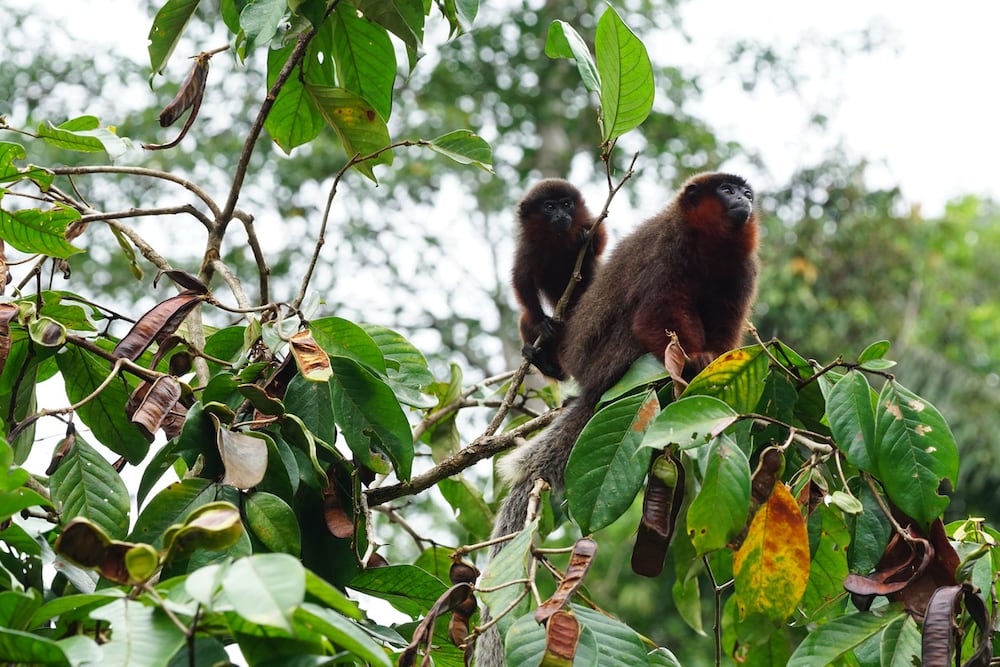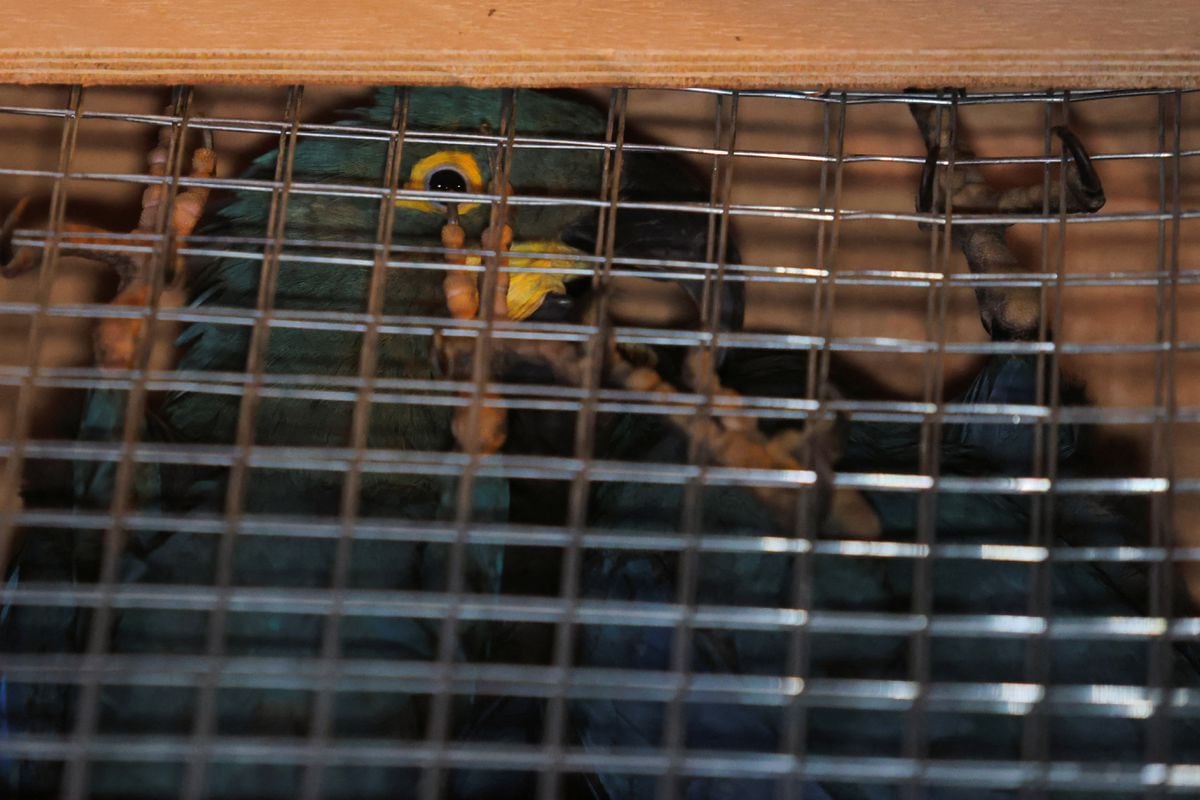Sofya Dolotovskaya, a researcher at the German Primate Center, toured the northern Peruvian Amazon in order to study the sexual behavior of copper-colored marmosets that live in the jungle.
The results of the work, which was published this Monday in the journal
Nature
, reveal that these primates are one of the few animal species faithful to their mate.
In the fieldwork, which lasted 14 months, the researcher and her team studied fourteen groups of copper-colored marmosets to determine whether or not they were genetically monogamous.
"Forty-one individuals could be genotyped using fecal samples from which DNA was extracted and sequenced in the Genetics Laboratory of the German Primate Center in Göttingen."
The study findings confirm that none of the offspring of the couples examined was sired by a monkey other than the social father, the mother's partner.
The research proved that the primates analyzed reproduced with the same partner with whom they shared their day-to-day lives.
That is, they were faithful and loyal companions.
Dolotovskaya explains that there are only seven species of mammals with proven genetic monogamy in nature.
"Discovering a new species with these social behaviors and this mating system is interesting in itself," says the researcher by mail.
Another of the relevant findings of the work is to understand that copper-colored marmosets do not seem to avoid inbreeding and can sometimes mate with related individuals.
"Despite this, the degree of genetic kinship between couples is low," concludes Dolotovskaya.
According to the research, copper-colored marmosets live in small family groups, made up of males, females and young, that defend a single territory.
Usually, only one child is born a year, who leaves the group when they reach sexual maturity or shortly after and look for a partner, with whom they occupy their own territory.
The study demonstrated an exceptionally high level of male grooming.
"The baby marmoset is carried almost exclusively by the father."
One of the main reasons for monogamy in this species is that the male and female remain close almost all the time.
The couple's partners have a strong relationship, spending the day and night in close proximity and grooming each other.
This behavior - says Dolotovskaya - allows the couple to be protected from coming into contact with individuals outside the group.
“We also verify that marmosets are very territorial, each pair has its home area and other animals are not found frequently.
As a consequence, there are not many opportunities for copulations with other monkeys ”.
The couple's partners have a strong relationship, spend the day and night in close proximity and groom each other
The researcher says that in many other species there are offspring that are born from copulations outside the couple, but are raised by the social father.
"This behavior is very common even in mammals that live in pairs," says Dolotovskaya.
And he explains: “The reason is that the choice of partner is often limited and sometimes wrong.
Many species only realize that the chosen couple is not the best genetically after already living with it.
So, in order to guarantee the best possible genes for her own children, she can look for the genes of a neighbor or a floating male without giving up the security of her own territory and the supportive social father ”.
This does not happen in marmosets.
Unlike other species, in these coppery monkeys, which feed on fruits, leaves and insects, breeding with a different mate does not provide a genetic advantage.
"That is why we believe they avoided the risks of infidelity," says Dolotovskaya, who lived through the harsh Amazon during the months of investigation.
"In addition to the mosquitoes and the humidity, I remember once we were walking through the forest when one of the scientists who was accompanying me stepped on one of the most poisonous and dangerous snakes in the jungle," explains Dolotovskaya.
And he adds: "We were scared, but luckily he didn't bite her."
Eckhard W. Heymann, a scientist at the German Primate Center and director of the field station in Peru where the research was conducted, states by mail that in an undisturbed ecosystem young coppery titi monkeys migrate far enough from their natal group to find a suitable partner without incurring the risk of inbreeding and reducing the chances of infidelity.
"Additional studies should show whether genetic monogamy is also prevalent in other populations of copper-colored marmosets, especially in fragmented habitats," says Heymann.
And he concludes: "Examination of the mating system and the mechanisms of social relationship of these monkeys can shed light on the evolution of social and genetic monogamy in mammals."
You can follow
MATERIA
on
,
,
or subscribe here to our
newsletter







/cloudfront-eu-central-1.images.arcpublishing.com/prisa/YE3SNKNQL5CWDPUCQDSLUHHSC4.jpg)

